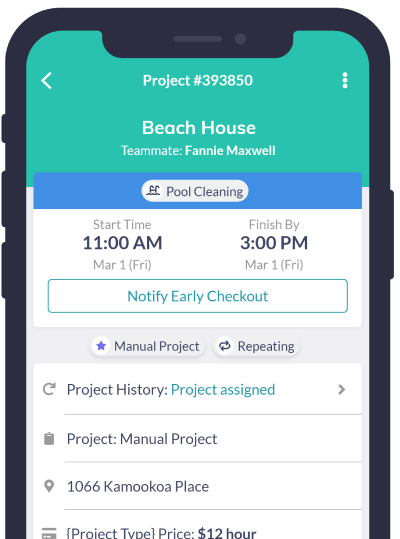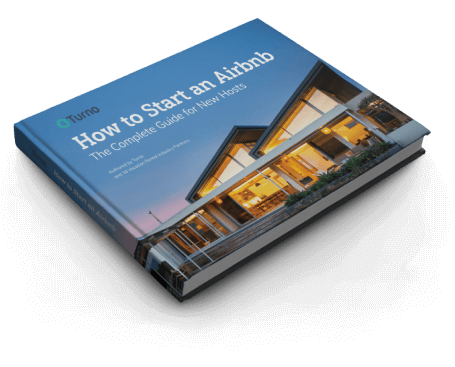First Thing’s First: What’s Considered a Short-Term Rental?
Each city or county has varying definitions of what is considered a short-term rental. This will impact how you rent out your space, the types of permits you need, and what other local laws if any, may apply.
Type of Structure
Some areas do not allow entire single-family dwellings to be short-term rentals. Some definitions require the property to look and act like a residence in which someone lives.
In some cases, mobile homes, RVs, and boats are considered short-term rentals, while some government bodies do not accept this definition.
Length of Stay
In many parts of the world, the length of stay for a short-term rental is limited to less than 30 days. Other jurisdictions approve up to 120+ days a year. Note that in many locations, long stays (30+ days) are the fastest-growing length of stay.
Some jurisdictions also require that the property have a primary resident to prevent hosts who don’t live on the property from renting out a unit or entire property as a short-term rental. That said, these regulations are constantly being changed.

Examples of Short-Term Rental Regulations Across the Globe
With different regulatory dynamics across the world, it is important to understand the legal considerations for short-term rentals when you are planning to start your own Airbnb business. Below are some examples of the laws and regulations that govern short-term rentals.
United States
Destinations that place restrictions on short-term rentals include Washington D.C., Los Angeles, Santa Monica, San Francisco, Charleston, and New York City.
For example, San Francisco caps short-term rentals at 90 days, but the limit only applies when the host is not present at the property throughout the guest’s stay. In Los Angeles, rules note that homeowners can only rent out their primary residence up to a maximum of 120 days annually.
In Santa Barbara, short-term rentals are officially considered “hotels” that can only operate in designated areas, while in San Diego, short-term rentals are now prohibited in any area.
New York City has some of the toughest restrictions. To prevent disruption to residents and help prop up its hotel industry, New York limits most short-term rental stays to a 30-day minimum.
After a November 2019 referendum in Jersey City, the city enacted regulations for short-term rentals considered to be the most stringent in the U.S., allowing for only 60 rental days per year.
A new law in 2022 will make short-term rental properties located outside designated resort areas illegal in Honolulu. The city further increased fines for anyone violating the new regulations from up to $1,000 to up to $5,000.
Canada
In Whistler, short-term rental hosts and property owners must obtain a license for their business, and those who don’t, risk a $1,000 daily fine.
The property must also be zoned for tourist accommodation to be eligible for the business license. A property zoned in a residential area can’t be marketed to tourists for any length of time. Whistler takes it a step further and provides an interactive zoning map on its website.
Toronto’s short-term rentals are described as all or part of a dwelling unit rented out for less than 28 consecutive days. Hosts need to register with the city and are required to collect and remit a 4% municipal accommodation tax (MAT) on all rentals.
Europe
The short-term rental industry has come up against huge criticism in recent years for taking from the already stressed housing inventory in many markets.
Amsterdam, Barcelona, Paris, and Venice currently have restrictions on short-term rentals. For example, Barcelona issues 9,800 short-term rental licenses maximum per year and is under constant scrutiny by local housing activists to bring that number down. In Paris, hosts must register each home and have a 120-day maximum annual rental limit.
In 2021, the European Commission (EC) announced the short-term accommodation rental initiative, seeking a “more resilient, innovative, and sustainable ecosystem” for tourism including new rules for short-term rental services.
With the EC poised to adopt new rules in the third quarter of 2022, a European Union (EU) Host Action Plan seeks to ensure the benefits of short-term rentals remain while working with regulators to address negative impacts. A large part of the plan includes the establishment of an EU host registry and the enforcement of regulations.
United Kingdom
Ireland allows short-term rentals a maximum of 90 days per year for primary residences. Currently, these residences must be registered, and stricter enforcement is coming.
Hosts in London need to follow the 90-Day Rule, allowing them to rent their property short-term for up to 90 days per year unless they have express permission for extra time. Airbnb automatically blocks the calendars of all London listings once they reach their annual 90-day maximum.
Asia
In Japan, vacation rentals must be registered and can only be rented for up to 180 days annually. Additionally, short-term rentals offering less than 3-month stays are illegal in Singapore.

Short-Term Rental Regulations In Your Neighborhood
Legal restrictions on short-term rentals vary from city to city, so you must make sure there are no limits or rules against renting your home on a short-term basis, subletting, or any other form of renting in your area.
If you already own or rent a home you’d like to use as a short-term rental, check your lease or rental agreement, HOA covenants and restrictions, or co-op board regulations. In the same vein, if you’re in the market for a short-term rental home but haven’t yet signed off on the investment, carefully review the applicable documents to ensure hosting is permitted where you live.
If you’re able to and choose to rent out your property, expect to pay a processing fee, endorsement fee, local occupancy taxes, and other expenses. For example, hosts in the District of Columbia are required to pay over $100 for a two-year vacation rental license.
Short-Term Rental Licenses and Other Potential Restrictions
If you’re operating any sort of a business, including renting property, you will likely require a standard business license, just as you would in any small business. This is typically facilitated by the city you operate in.
Don’t forget to check other long-established community restrictions, such as parking and noise bylaws.
Airbnb’s Own Rules
The rental platform Airbnb has been facing a PR nightmare with reports of illegal parties. In 2020, they banned parties worldwide and introduced an occupancy cap of 16 guests mainly because of the rise in property damage and neighbor complaints.
To be a responsible host and meet the needs of the Airbnb community, keep these tips front of mind:
- Be mindful of your neighbors: Provide a list of house rules to your guests to encourage them to be conscientious of those living around your property.
- Prioritize health and cleanliness: Though you may not always prevent unauthorized parties and guests from leaving big messes, you need cleaners that can handle Airbnb’s 5-step enhanced cleaning protocol to maintain safety for the next guests.
- Take safety measures: This includes providing emergency contacts for the nearest hospital, first aid kits, a smoke alarm and carbon monoxide detector, and directions for emergency exits.
The information in this chapter was accurate at the time of publication. We highly suggest that readers contact their local and regional authorities for the most updated regulations and potential changes.







